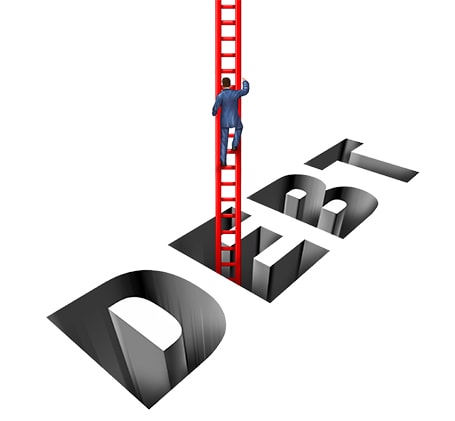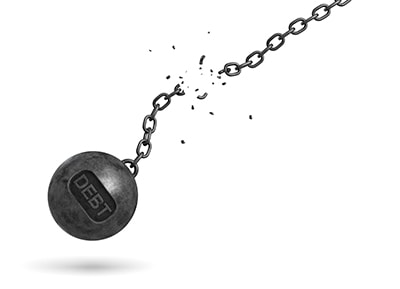Debt Recovery in UAE
“If you would know the value of money try to borrow some.”- Benjamin Franklin
What is debt?
 From the ancient times of the barter system, traces of debts can be found. This was when people exchanged goods and serviced for other goods and services. But now there comes an age when there are no goods or services to be exchanged. In a time like this, what are the measures that can be adopted in case a party fails to provide the promised services or goods? This creates a need to recover a debt. There were various ways of dealing with debts in the ancient age; from death sentence to slavery, to the right to take the debtor to court as per the governing laws.
From the ancient times of the barter system, traces of debts can be found. This was when people exchanged goods and serviced for other goods and services. But now there comes an age when there are no goods or services to be exchanged. In a time like this, what are the measures that can be adopted in case a party fails to provide the promised services or goods? This creates a need to recover a debt. There were various ways of dealing with debts in the ancient age; from death sentence to slavery, to the right to take the debtor to court as per the governing laws.
Over the passage of time, the legal process now has become very regulated. Most of the claims with regards to debt recovery are settled through courts. The Courts in the UAE have developed their system to deal with the various types of money claims.
Do I need to go to court to recover my money?
It is always a very good option to utilize the available sources and opportunities to recover once money before approaching the court of law. Making use of sources such as issuing a legal notice, making follow-up calls and trying to contact the debtor to repay are always the preferred options and have given good results. However, it shall always be kept in mind that the financial condition of the debtor, as well as the age of the debt, shall play a crucial role herein.
In situation wherein the creditor is not aware of the contact details of the debtor, the creditors can make use of the services of a private investigation agency to verify as to if the debtor is still active and if there are chances for recovery.
“Compromise is the best and cheapest lawyer” – Robert Louis Stevenson
If it is a situation wherein the debtor admits to the debt that is owed but also confesses his financial difficulty in paying the creditor, then the next and best step would be to offer the debtor a payment plan to clear the debt. Herein, the debtor shall commit to pay the outstanding over an agreed period of time in the form of set installments. It is extremely important to attempt to reach a settlement with the debtor before knocking the doors of court, as the judges are likely to note the fact that the creditor did try to settle the matter in an amicable way, before taking the precious time of the court.
However if the debtor fails to honor the payment plan and is irresponsible with his payments, then in that case serving a final demand notice before going to court shall be the only option left. The said demand notice shall be served to the debtor via email and registered mail. The demand notice should clearly mention a deadline before which the outstanding due should be paid, failing which there shall be legal proceedings initiated to recover the debt. If the debtor does not respond to the final request to clear the outstanding, then in that case there shall be no other option but to approach the court for justice.
The cheque you signed for a bright future, might be the reason for its darkness!
Article 401 of the Penal Code of the UAE states that “A punishment of confinement or a fine shall be inflicted upon any person who, in bad faith draws a cheque without no existing or withdrawal provision, or after issuing the cheque, withdraws all or part of the fund so the balance becomes insufficient to settle the amount of the cheque, any person who endorses or delivers to another cheque payable to the bearer, whilst being aware that there are no existing funds covering its value, or it cannot be drawn, shall be liable to the same punishment.”
The above is the legal description of the criminal consequences of a bounced cheque in the UAE. The dishonor of a cheque creates the rights of the creditor to initiate to file a criminal case against the defaulter. It can, in fact, be said that the criminal liabilities shall automatically and immediately be triggered as soon as the debtor's account shall reflect insufficient funds to honor the cheque.
In addition to criminal proceedings taken against the defaulter wherein the defaulter shall be fined or ordered to confinement, the creditor can rely upon Article 246 and Article 710 of the UAE Federal Law No. 5 of 1985 of the Civil Code and file a civil case against the defaulter.
Article 246
“contract must be performed in accordance with its contents, and in a manner consistent with the requirements of good faith.”
Article 710
“A loan is the granting of ownership of property or fungible things to another with the condition that the other should return it like in amount, kind and description to the lender upon the expiry of the period of the loan.”
Both Article 246 and Article 710 of the Civil Code establish the civil liability of the defaulter to fulfill his/her obligation towards the contract. Upon obtaining a judgment from the civil court, the creditor shall have to file for an order for execution, post which the judge shall order the defaulter to honor the civil court's judgment or in the alternative face imprisonment till the period satisfactory to the court.
What can I do as a creditor?
As a creditor, one shall obtain all the correspondences from the bank that evidence the fact with regards to the defaulter having insufficient funds in his account at the time of cashing the bounced cheque. Post receiving the relevant correspondences and evidence for the cheque dishonor, the creditor should approach the police station to file a criminal case against the defaulter. Upon completion of the police investigation, the police shall refer the matter to the public prosecutor’s office.
Note: if six months have passed from the date of the cheque bounce, a police complaint cannot be filed. Prosecution and its role in criminal proceedings.
 Once the police transfer the file to the public prosecutor’s office, the public prosecutor shall investigate the said offence of cheque bounce. He shall examine the details of the bounced cheques such as its reason to be issued as well as the intent behind the same. At this stage, the public prosecutor usually examines and takes the statements of both the parties and post considering all circumstances, decides to grant or reject bail. In case the public prosecutor decides to grant bail to the defaulter, then, in that case, the defaulter shall either have to pay a bail “Kafala” which shall either be the amount equivalent to the cheque amount or else depositing his passport or that of another guarantor. In case, the public prosecutor decides to reject the bail; the prosecutor may order the defaulter towards imprisonment until the court chooses to date to hear the case.
Once the police transfer the file to the public prosecutor’s office, the public prosecutor shall investigate the said offence of cheque bounce. He shall examine the details of the bounced cheques such as its reason to be issued as well as the intent behind the same. At this stage, the public prosecutor usually examines and takes the statements of both the parties and post considering all circumstances, decides to grant or reject bail. In case the public prosecutor decides to grant bail to the defaulter, then, in that case, the defaulter shall either have to pay a bail “Kafala” which shall either be the amount equivalent to the cheque amount or else depositing his passport or that of another guarantor. In case, the public prosecutor decides to reject the bail; the prosecutor may order the defaulter towards imprisonment until the court chooses to date to hear the case.
Probable punishments a defaulter could face.
Post the case being referred to the criminal court, the court shall decide a date to hear the case and shall examine the report of the public prosecutor along with each parties’ allegations and defense. Upon examining all the circumstances and evidence present before the court, the court may order the defaulter to towards penalty and/or serve time in prison. The punishment granted to the defaulter may vary due to the circumstances of the case such as the reasons for the transaction along with intention and motive while drawing the cheque. In common situations, the confinement sentence in the majority of the situations shall range between one to three months and could reach till three years and/or fine which usually varies from Dhs 1,000 to Dhs 30,000 depending upon the amount of the cheque.
Execution of Judgments
A judgement cannot be executed unless the same is final and certified by the court as being fit for execution. The process of execution takes place in a separate department of the courts. The execution courts have specially assigned judges who are assisted by an execution bailiff and administrative staff to pass orders for execution. The execution judge is responsible for the entire execution process as well as the objections thereto. An order from the Court of First Instance can only be enforced wherein both the parties fail to file an appeal within 30 days from the date of judgment. If either of the parties files an appeal within the permitted time frame, the order is not considered to be final and cannot be enforced.
What are the ways to enforce a local judgement?
A local judgement can be enforced in various ways such as:-
- Attaching or selling the property of the debtor.
- Attachment of shares, stocks and bonds.
- Attachment and sell real estate
- Imprisonment of the debtor is a defaulter.
 In case either of the parties prefers an appeal to the judgment with 30 days from the date of order, then the case is referred to the court of appeals. In the court of appeal, the parties are allowed to introduce additional witnesses. The judgment of the court of appeal is final unless the parties wish to file a further appeal before the court of cassation within 30 days. The decision of the court of cassation is final, and hence the parties should be careful in assessing the case before choosing to file an appeal before the court of cassation.
In case either of the parties prefers an appeal to the judgment with 30 days from the date of order, then the case is referred to the court of appeals. In the court of appeal, the parties are allowed to introduce additional witnesses. The judgment of the court of appeal is final unless the parties wish to file a further appeal before the court of cassation within 30 days. The decision of the court of cassation is final, and hence the parties should be careful in assessing the case before choosing to file an appeal before the court of cassation.
A crucial piece of advice. –“A small loan makes a debtor; a great one, an enemy.”
Debt is a liability, and hence, it is suggested to consult a legal advisor before committing. In case the debtor has left the country, he can come back post settling the dues and cancellation of all warrants against him.
 Русский
Русский
 English
English 官话
官话 português
português عربي
عربي
 Türk
Türk 






.jpg)













